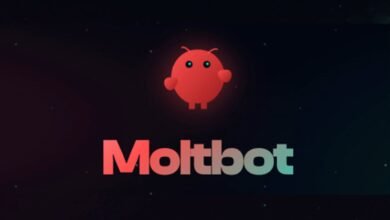Developers Rely on AI Daily but Remain Wary, Study Shows

▼ Summary
– 84% of developers now use or plan to use AI tools, up from 76% last year, with 51% of professionals using them daily.
– Only 60% of developers have positive sentiment toward AI tools, down from over 70% in previous years, with distrust rising significantly.
– 66% of developers cite “AI solutions that are almost right, but not quite” as their biggest frustration, followed by 45% struggling with debugging AI-generated code.
– Junior developers trusting AI too much risk creating technical debt, as AI adoption correlates with rising defect rates in code.
– Despite AI’s popularity, traditional tools like Visual Studio and languages like Python remain dominant, and 75% of developers still rely on human advice over AI for critical tasks.
Developers increasingly rely on AI tools for daily tasks, yet skepticism about their reliability continues to grow, according to new industry research. The 2025 Stack Overflow Developer Survey, which gathered responses from nearly 50,000 programmers, reveals that 84% now incorporate AI into their workflows, a notable jump from 76% the previous year. More than half of professional developers use these tools every day, yet enthusiasm for the technology has noticeably cooled.
While adoption rates climb, only 60% of developers expressed positive feelings toward AI, down from over 70% in both 2023 and 2024. Trust in AI-generated outputs has taken an even sharper decline. Last year, 43% of programmers believed in the accuracy of AI results, with just 31% expressing doubts. Fast forward to 2025, and only 33% now trust AI tools, while 46% actively distrust them. Among experienced developers, confidence is even lower, a mere 2.6% said they highly trust AI-generated code, with 20% reporting strong skepticism.
The biggest frustrations? Nearly 66% of developers cited AI solutions that are “almost right, but not quite”, leading to wasted time and effort. Another 45% said debugging AI-generated code takes longer than expected. These concerns aren’t unfounded, industry experts warn that blind reliance on AI could create long-term technical debt. Bill Harding, CEO of Amplenote and GitClear, analyzed over 211 million lines of code and found that defect rates rise as AI adoption increases. “More code often means worse outcomes,” he noted, emphasizing that copy-pasted AI solutions frequently introduce errors.
Despite these concerns, OpenAI’s GPT models dominate the AI coding landscape, with 82% of developers using them in the past year. Anthropic’s Claude Sonnet and Google’s Gemini Flash trail behind. Yet, when it comes to development environments, traditional tools like Visual Studio (75%) and VS Code (29%) remain favorites, even among AI users. Microsoft’s integration of Copilot has been well-received, but simpler editors like Vim and Notepad++ still hold strong appeal.
Programming language trends remain steady, with JavaScript, HTML/CSS, and Python leading in popularity. Python’s surge is likely tied to its role in AI frameworks like TensorFlow and PyTorch. Meanwhile, Rust continues to be the most admired language, boasting an 83% approval rating.
Looking ahead, developers remain cautious about delegating critical tasks to AI. A striking 75% said human expertise remains irreplaceable when AI outputs are questionable. While AI agents are gaining traction, 38% of respondents have no plans to adopt them soon, preferring simpler AI-assisted tools instead.
The message is clear: AI is here to stay in development, but programmers aren’t ready to fully trust it, and for good reason.
(Source: zdnet)


